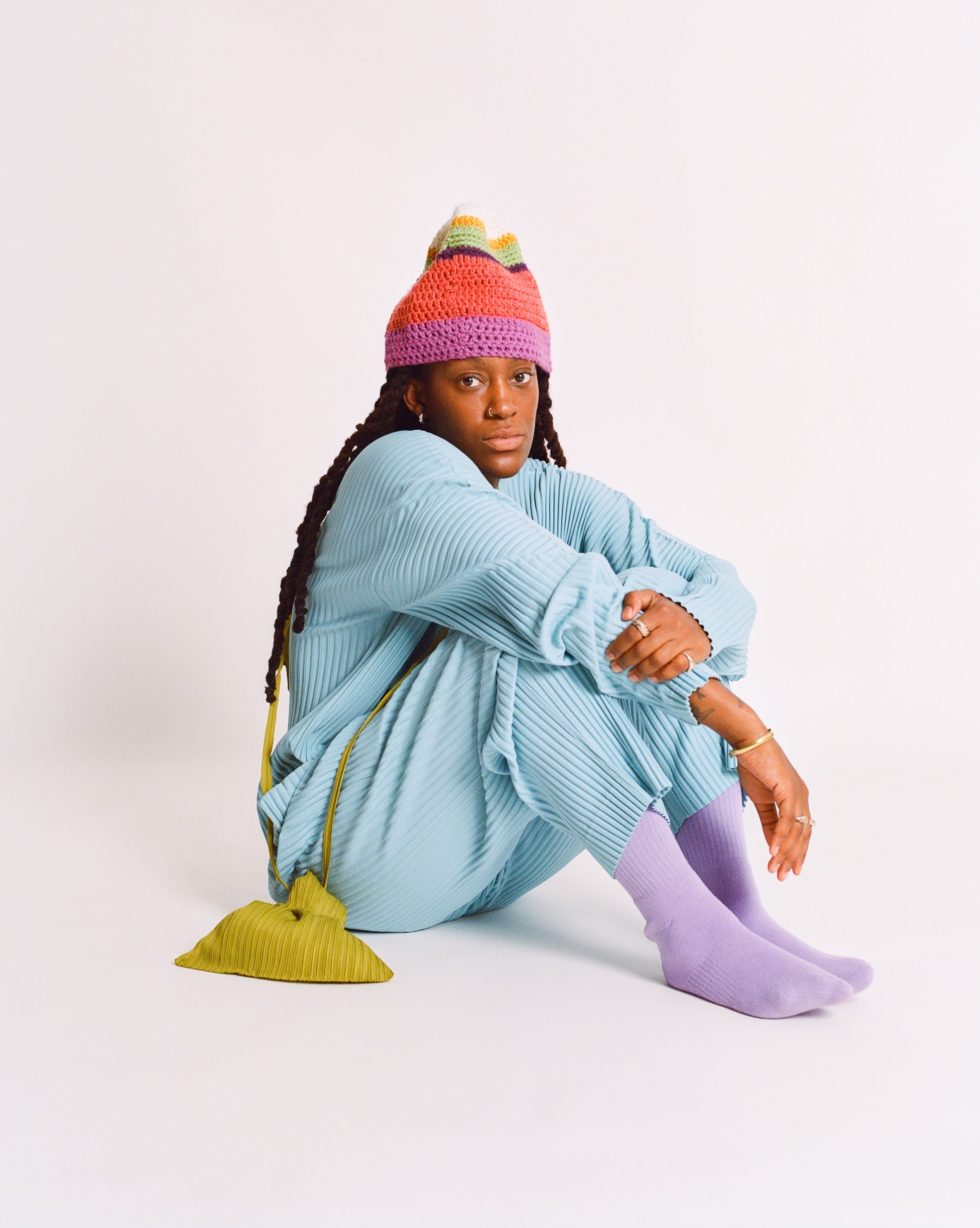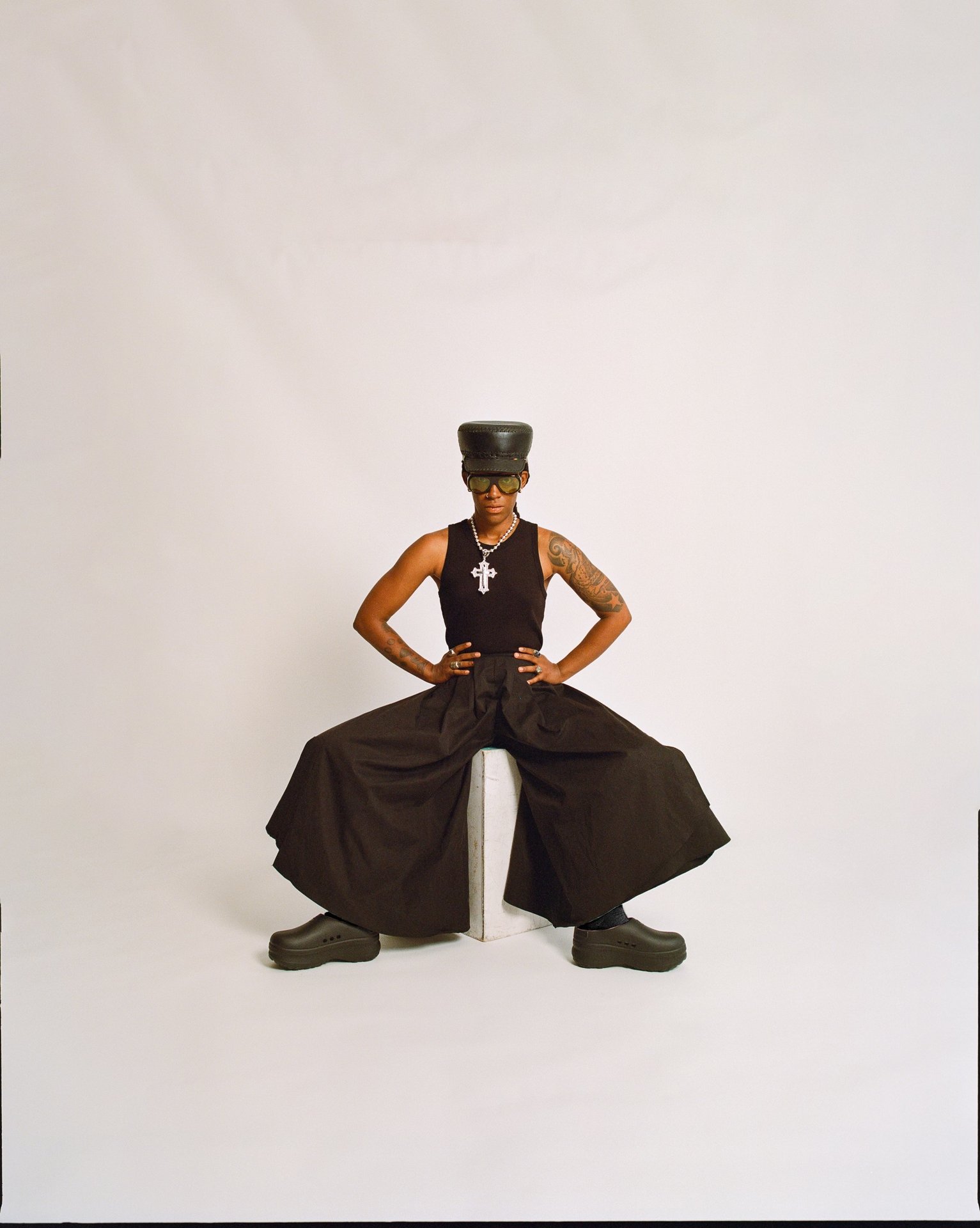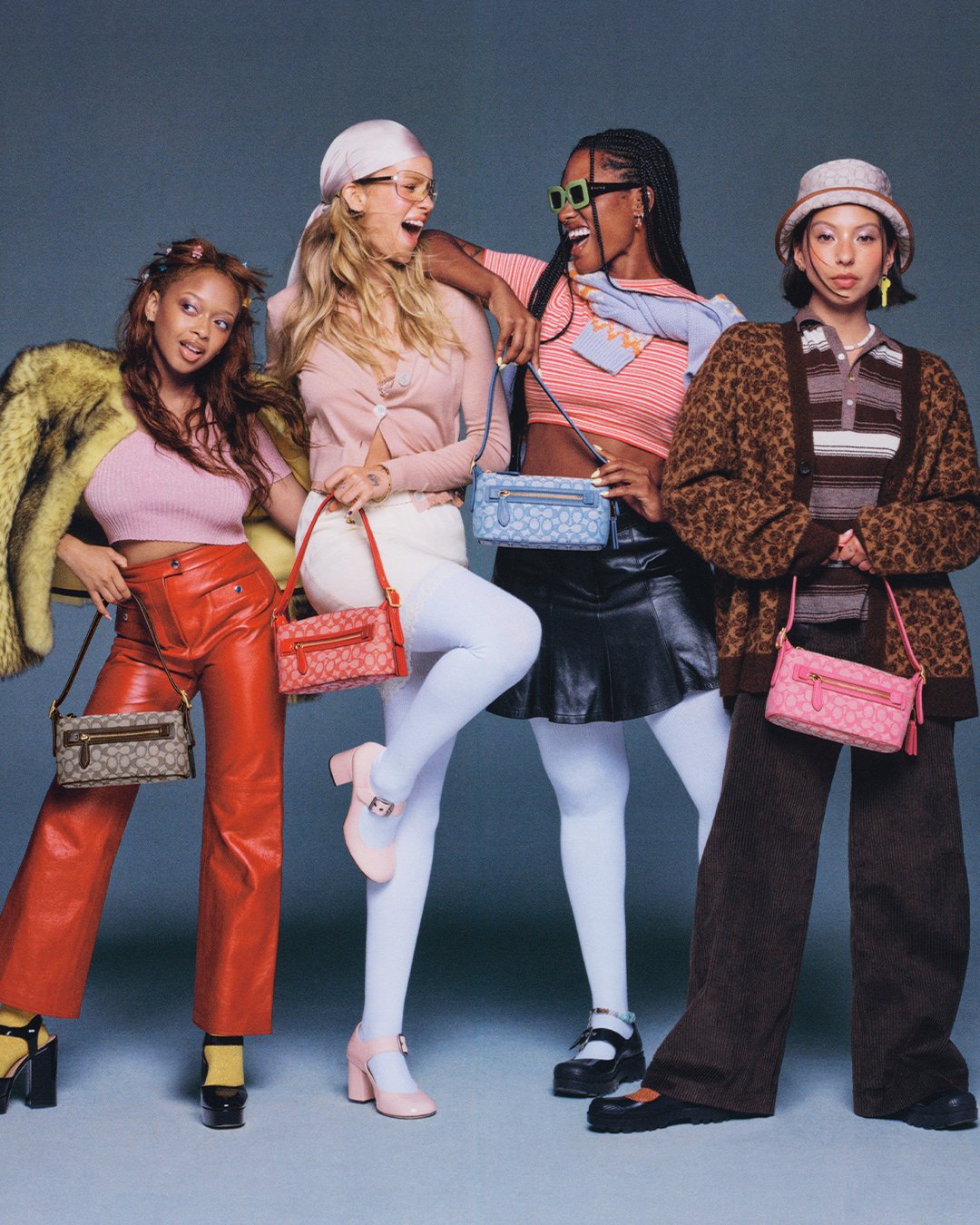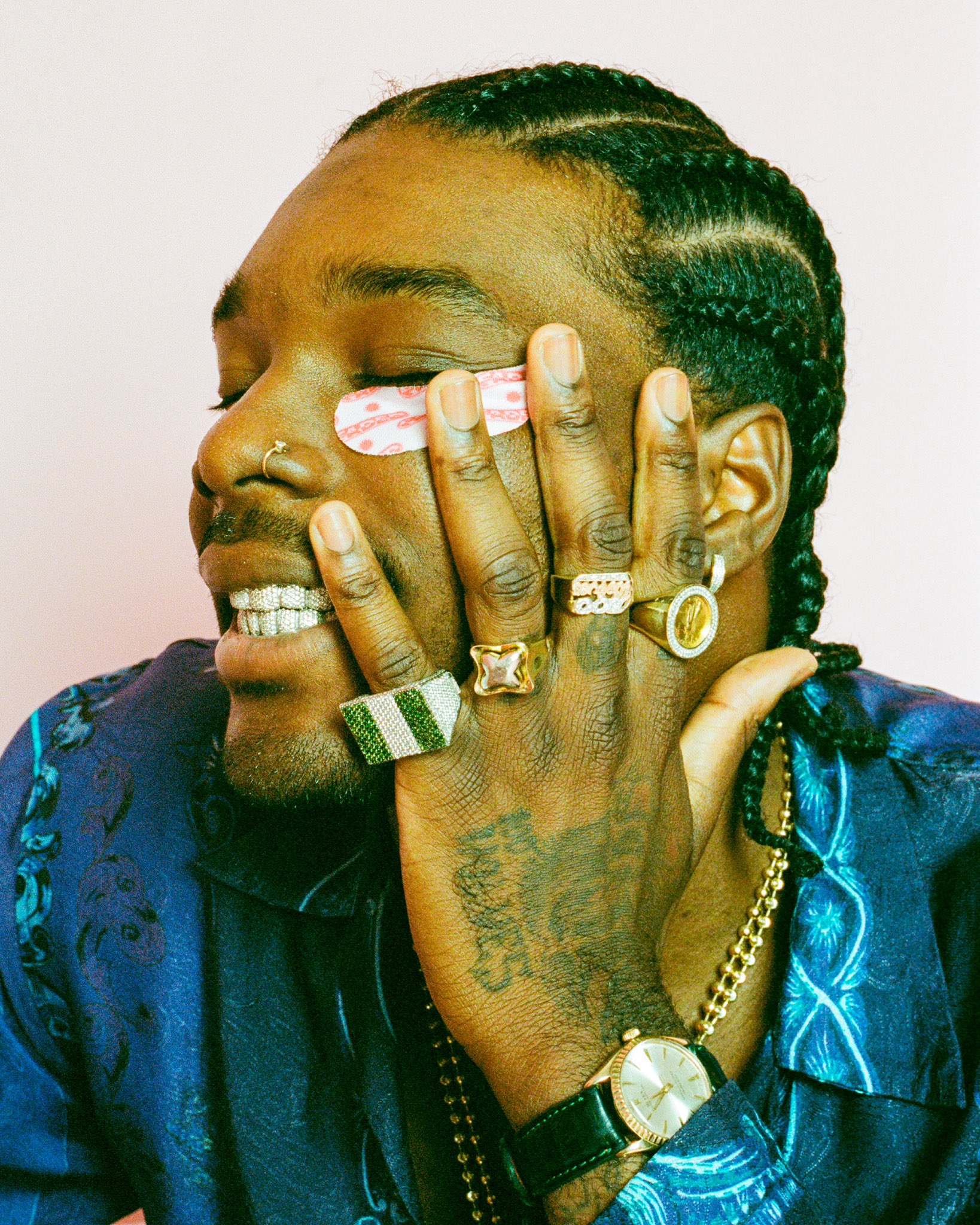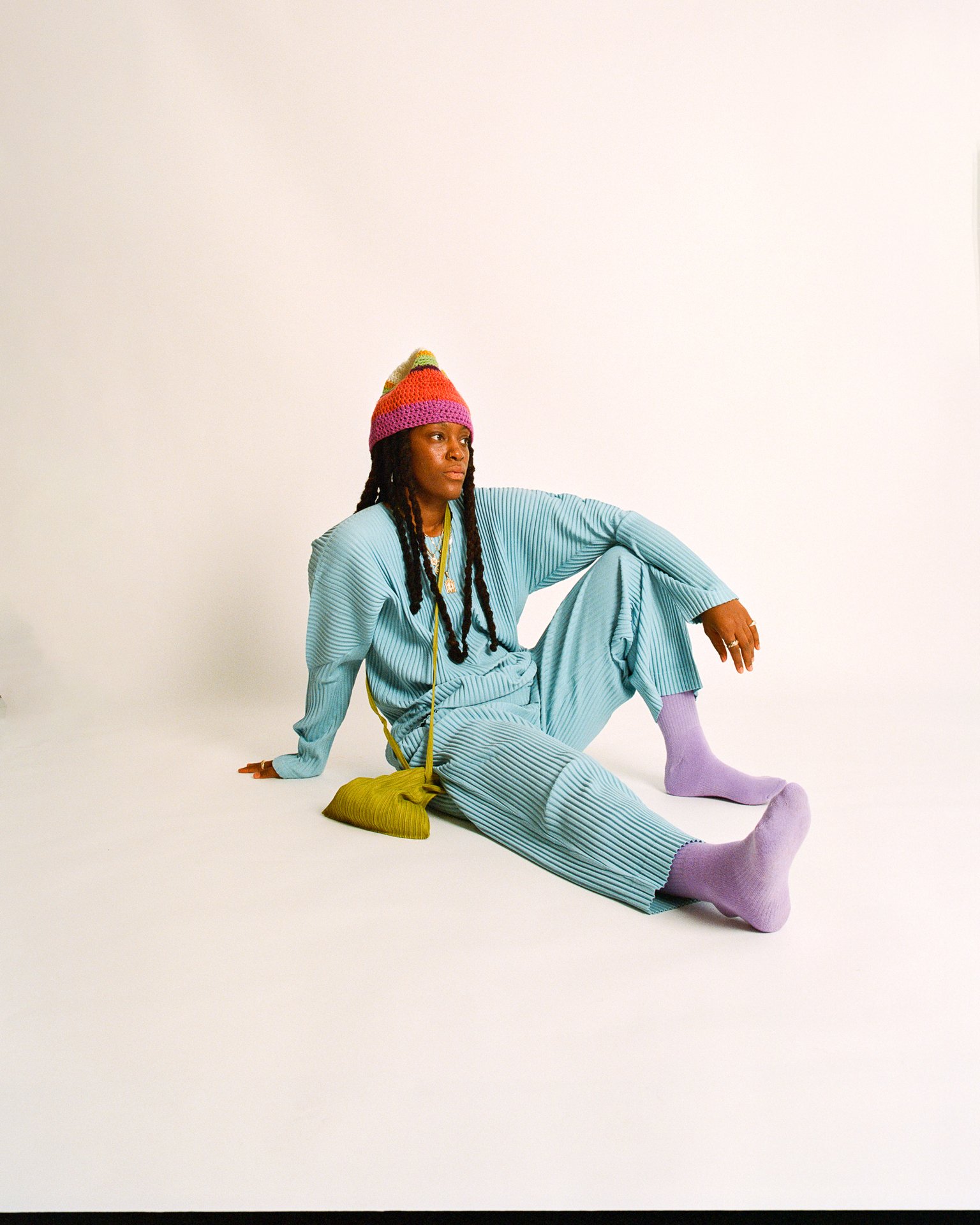Solange Knowles and her Saint Heron label, as far as I can tell, were the catalysts for your professional career. How did you land that position?
I began working for Solange before arriving in New York. I was still in Ohio, but it was remote, so it worked out because I was writing for her online platform she had just launched around her album “A Seat at the Table,” which set the tone for everything to come. Diane “Shabazz” Varni, one of her close friends, started following me on Instagram and we began interacting. One day she hit me up saying she loved my taste and that it’s really cool. She went on to ask if I’ve ever been interested in writing for a magazine, and at the time, I was honest and said, “I don’t really have a background in that, but I’d love to give it a try.”
She then informed me that Solange was launching a platform called Saint Heron and that she “Shabazz” would love for me to write about Black culture, music, my interests, and what I like. I was given a lot of freedom to learn journalism and talk about the things I’m interested in. They helped me craft how I see art, music, and my lens on it. As I became more familiar with Saint Heron and their vision, they entrusted me to lead some social media strategies, allowing me to have my vision and voice heard.
You pivoted into music. First RCA, then Interscope Records. What brought you here?
I know! At the time, I was working for Mass Appeal under Nas; this was my first taste of working in the music industry, and while it was a small company, it was a great experience. George Clark, a friend of mine and Cincinnati native, was working at RCA when he introduced me to a position they had available despite my lack of entry-level experience. It goes back to what I said earlier about how each stage of my career is destiny because the next dot has always been connected by someone else.
I ended up applying and started off as a digital coordinator, and to be frank, I was horrible at that job. My boss Stephanie Pensa had a lot of patience with me and tried to help me as much as she could. In any case, I was awful at that role and was on the verge of getting terminated until she pulled me back into the office and told me, “This position isn’t working; however, she knows there’s another way I can be a resource for the organization.”
TikTok was just beginning to gain traction at the time, and I was told to take some time off. I came back to her with the idea of establishing an influencer marketing department which no other record labels had at the time; she saw the vision and allowed me to pitch my idea to all the heads of RCA, which included content for Doja Cat, Flo Milli, Justin Timberlake, and Alicia Keys. I was sweating, but they ended up loving the idea and switched my position from digital coordinator to strictly handling all influencer marketing across all genres.
Interscope was another amazing experience for me, and although I was only there a short time, I was able to work on some amazing projects and really be creative with my influencer marketing strategy. I had the honor of working on campaigns for Summer Walker, Yo Gotti, Machine Gun Kelly, and other A-List artists.
